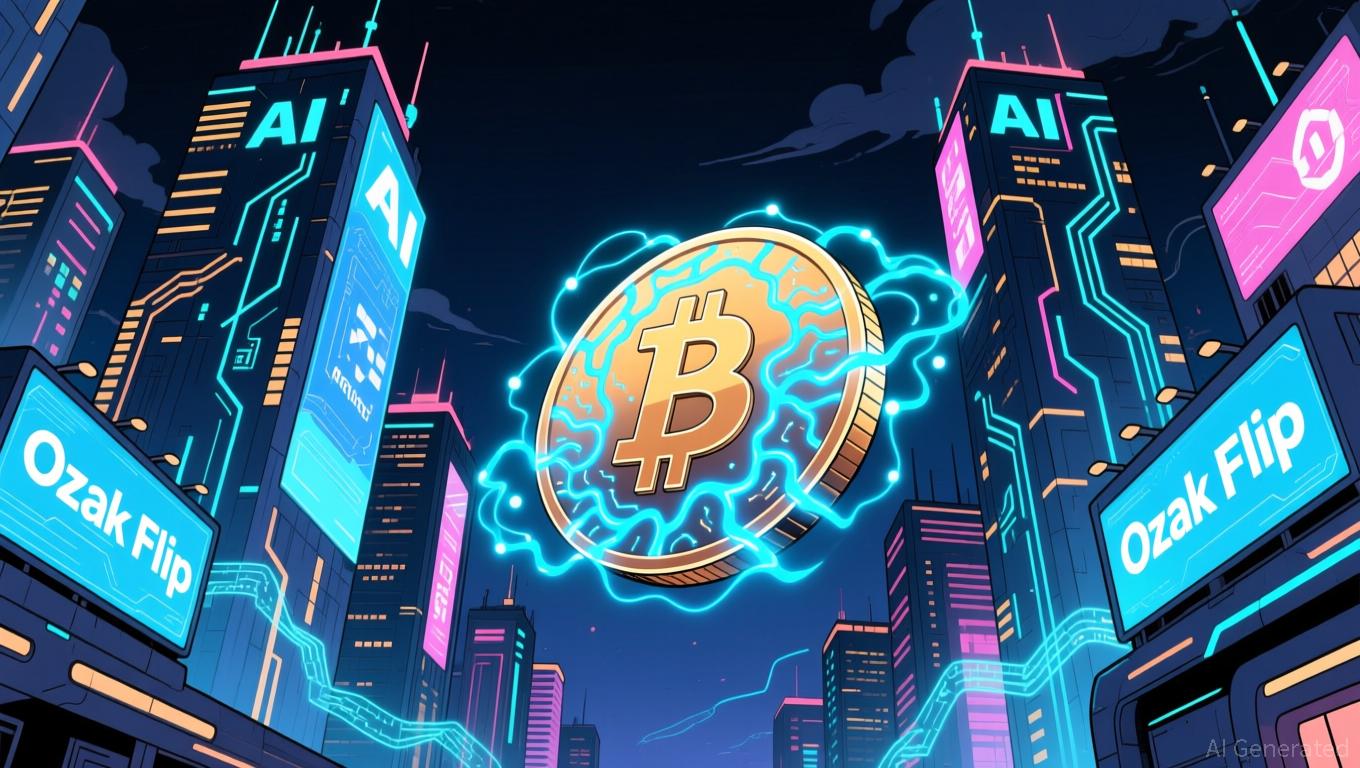When Nick Turley took on the role of ChatGPT lead at OpenAI in 2022, his mission was to turn the company’s research into a commercial product. He’s made significant progress, expanding ChatGPT’s user base to 800 million active users each week. Now, Turley is aiming even higher: he wants to reinvent ChatGPT as a new kind of operating system, packed with third-party applications.
This week, I met with Turley just outside San Francisco’s Fort Mason, the site of OpenAI’s third annual developer event, to talk about his vision for ChatGPT’s next chapter. You’ll find a full transcript of our discussion at the end of this piece.
To evolve ChatGPT into an operating system, Turley says he’s taking cues from web browsers. Over the past ten years, browsers have become a kind of operating system—not in the traditional sense like Windows or macOS, but as the primary environment where people use a wide range of web apps. Turley envisions ChatGPT following a similar path: a platform that could redefine how users engage with software.
Rumors suggest OpenAI is working on a browser as well. Turley neither confirms nor denies this, but he does call browsers “really interesting.” The company is also collaborating with Jony Ive and a team of veteran Apple designers on a suite of hardware products. With these initiatives, it’s easy to imagine a ChatGPT-based operating system filled with apps becoming a cornerstone of OpenAI’s consumer offerings.
OpenAI has been pursuing this direction for some time. In 2023, they introduced several “AI app store” projects, including ChatGPT plugins and the GPT Store. While those didn’t achieve massive success, OpenAI appears to have a more promising strategy now.
Launching apps fits with OpenAI’s ambition to make ChatGPT a hub for e-commerce. Apps from companies like Expedia, DoorDash, and Uber could drive more transactions within ChatGPT, allowing OpenAI to facilitate and benefit from these exchanges. Being featured in ChatGPT could become a significant business opportunity for both partners and OpenAI itself.
This could also be OpenAI’s most attractive proposition for developers so far. Third-party creators can now access ChatGPT’s 800 million users as part of their daily interactions. Apps are integrated into ChatGPT’s main experience, rather than being tucked away in a separate widget store. Developers can also craft more engaging experiences, moving beyond simple chatbots linked to their own data.
However, managing an operating system brings its own set of challenges, such as deciding how to highlight certain apps over others. Turley says OpenAI hasn’t ruled out the possibility of letting companies pay for better app placement in ChatGPT, but they’re still figuring out how to do this without compromising the user experience.
Third-party developers will likely want access to ChatGPT’s user data. OpenAI’s guidelines state that app creators should “collect only the minimum data needed for the tool to function,” but what that means in practice is still unclear. Turley mentions that OpenAI might introduce features—like partitioned memory in ChatGPT—to allow users to grant developers more precise access to their data.
One notable takeaway from our talk was Turley’s perspective on ChatGPT as the “delivery vehicle” for OpenAI’s nonprofit mission: to create and share artificial general intelligence (AGI)—highly autonomous AI systems—for the benefit of humanity. Some OpenAI researchers are concerned that the company’s consumer business could overshadow its nonprofit goals. But Turley insists that ChatGPT is how OpenAI intends to bring AGI to the public. Quite a perspective shift, isn’t it?
Below is my interview with Nick Turley, the head of ChatGPT. The conversation has been condensed and edited for clarity.
 Nick Turley, Head of ChatGPT at OpenAI.
Image Credits:OpenAI
Nick Turley, Head of ChatGPT at OpenAI.
Image Credits:OpenAI
How do you view ChatGPT as a platform for other businesses?
I believe that in a few years, we’ll look back at ChatGPT and realize today’s version is like the command line era—powerful, but missing key features, especially when it comes to usability.
In traditional operating systems, it’s clear why people prefer opening apps on Mac or Windows instead of memorizing commands. It’s pretty wild that we’ve reached 800 million weekly users with the current interface. Growing in this category is tough and unusual, yet the growth has been explosive.
Our goal for the coming years is to make ChatGPT more like an operating system where users can access various apps. Whether you want to write, code, or interact with products and services, there will be dedicated applications for each need.
But we can’t build every app ourselves. We’re not planning to launch a music streaming service or recreate Coursera’s educational library. We’re also not going to compete directly with companies like Expedia or Booking.com. That’s why partnerships make sense.
There’s also a new wave of apps that people will create, which simply weren’t possible before. Just as Uber was enabled by mobile platforms, I’m excited to see what unique apps might emerge for ChatGPT.
We also want to give developers—many of whom have been with us from the start—access to ChatGPT’s massive user base. If they can improve ChatGPT and build successful businesses on top of it, it benefits the entire ecosystem.
What sources do you draw from when developing ChatGPT?
There’s no single blueprint. I often tell candidates that first-principles thinking is essential—if you just try to copy what Meta or Google did, you’ll quickly run out of examples. With products like ChatGPT or Sora, there’s really no precedent, so you have to pull analogies from a variety of places.
Browsers are fascinating because, in many respects, they’ve become the de facto operating system over the past decade. How many of us still use desktop apps? Maybe Excel or PowerPoint, but most of our work happens in the browser through web-based tools.
I’ve also looked at early ads for the [Apple] PowerBook. It reminds me of ChatGPT—an appliance with so many potential uses that people didn’t fully understand at first. The ads would say things like, “It’s a calculator, it’s an alarm clock.”
So, there isn’t a single model to follow, but it’s important to learn from the past. Looking only at the last ten years might not provide the perfect comparison.
You mentioned browsers and devices. How do you plan to expand ChatGPT into those areas?
At OpenAI, we’re encouraged to think big. Productivity is one area we’ve covered with ChatGPT, but there are many other product categories that AI will transform. Entertainment is one—hence my excitement about Sora. Social media is another. Hardware and new ways to access the internet are also intriguing.
Think of what we’re building as a suite of products and apps, all connected through your account, personalization, and identity. I’m glad we’re not limiting ourselves. Even if we only focused on ChatGPT, there would be endless opportunities, but our ambitions for helping people go far beyond that.
I’m curious about how OpenAI’s consumer business aligns with its nonprofit mission. Some say the consumer side funds the mission. What’s your perspective?
When I joined OpenAI, it was mainly a research organization that occasionally released demos. My role was described as “helping commercialize OpenAI technology”—which was quite open-ended. Back then, the product’s purpose was to bring research to life so people could experience it. That’s still true, as you can see with Sora. The best way to start meaningful conversations about a technology’s impact is to actually launch something.
Later, we started to see the product as more than just a showcase—it became a way to support the mission financially. It was clear, even before I arrived, that this work would require significant resources.
But after ChatGPT’s launch, our thinking evolved. Our mission is to ensure AGI benefits everyone and is accessible to all. If you consider that AGI will likely emerge gradually, not all at once, then the product becomes the means to deliver on that mission. It’s how we actually make a difference for people.
When you look at what 800 million people are doing with ChatGPT each week, it’s helping them accomplish their goals. Did you see the keynote story about the man who learned to code at 89? That’s incredible. I’ve spoken to users who use ChatGPT to help their autistic children practice social skills, or who have taught themselves a new language using the tool. That’s what our mission is about.
So, I don’t think it’s accurate to say the consumer business just funds the mission. It’s actually how we express it. That’s one of the ways OpenAI has changed, at least from my perspective, since I joined.
Let’s talk more about the apps announced today. OpenAI says third-party apps can only collect the “minimum amount of data” needed to function in ChatGPT. How do you approach user privacy?
From the very beginning, we’ll require developers to clearly tell users what data they’re requesting. Apps will only be approved if their data requests are reasonable. We published our developer guidelines at launch, so developers know upfront that we’ll reject apps that don’t align with our privacy standards.
In the coming month, we plan to introduce ways for users to grant developers more specific access to their data. Apple has done a great job with this, letting users choose to share data just once or always, for example.
To do this well, we may need to develop a concept like partitioned memory in ChatGPT, which we’re still exploring. The idea is exciting because users might want to keep some conversations—like those about health—separate from others, such as music. They may want to share one but not the other with an app. We’ll have more details soon, as this is both a research and engineering challenge.
Transparency is non-negotiable for us. We want users to always know what data could be shared with third parties, and we’ll keep improving controls as we develop them.
DoorDash and Instacart will soon have apps in ChatGPT. If I want to order snacks, how will ChatGPT decide which service to use?
That’s a classic question. The simplest approach is to show both options. If you’ve used one before, we’ll prioritize it. If you’ve tried both, we’ll ask which you prefer. Over time, we could get more sophisticated—maybe one app is much better than the other, so it makes sense to highlight it.
We have several partners in the same categories. The most fair and respectful way to handle this is to present both choices to users.
Are you considering letting companies pay for better app placement in ChatGPT?
This is something we want to explore with developers. There’s a balance to strike. You could try to figure everything out in advance and launch with a set policy, but that might mean you haven’t gathered enough feedback. Or you could wait, which leaves some questions unanswered but lets you engage more deeply with partners.
We chose the latter approach because we know building this ecosystem will take time. It won’t happen overnight, so it’s better to carefully consider which distribution methods are fair.
Ultimately, we want users to have a great experience. If paid placement leads to irrelevant apps being shown, we wouldn’t support it. But if it helps highlight apps that are truly invested in reaching users, it could be positive. We don’t have a firm stance yet, but it’s a topic that’s come up with various partners.



